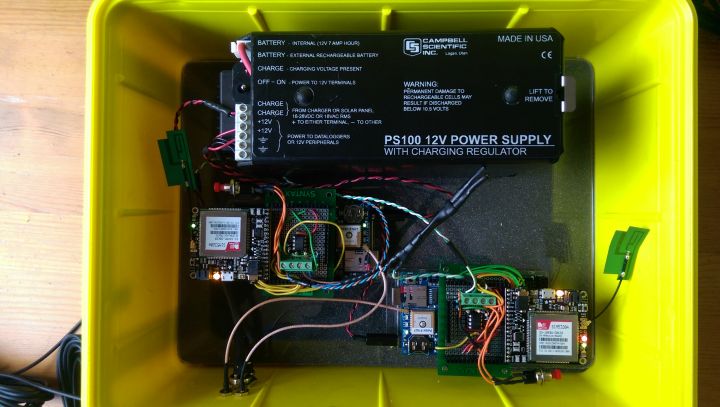The University of Alberta is preparing to accept some icy, cold research samples next week.

Twelve ice cores, which are a part of the Canadian Ice Core Archive, are currently on a more than 3,000 kilometre journey from Ottawa to Edmonton to be used for research.
READ MORE: Time-lapse images illustrate loss of older, thicker ice in warming Arctic
The samples were collected from northern Canada and are more than 10,000 years old. When strung together, they make up 1.7 kilometres of ice core.
But getting them here will be no easy task, according to Jeff Kavanaugh, an associate professor in the Department of Earth and Atmospheric Sciences.
READ MORE: Edmonton researchers help make Jurassic Park-like dinosaur discovery
“The main concern with transporting the ice is that it has to stay frozen during every moment of its journey. For this reason, the ice is being transported in a freezer container that should maintain the ice at about -30 C,” he said.
“Melt isn’t usually a concern during our Canadian winters, but nature has decided to serve up a relative warm spell during the time we’ve scheduled for the trip.”
To keep an eye on the samples, which will be transported in a refrigerated truck, Kavanaugh built a monitoring system to track the location and temperature of the freezer container.
READ MORE: Why the Arctic snow is turning pink and why it’s a bad sign
The system includes a GPS receiver and a cellular uplink, allowing him to receive regular updates about the location and temperature of the samples via text. The information is also uploaded to the Twitter account @IceCoreTracker1.
The samples are expected to arrive at the Edmonton university on Monday or Tuesday, and will be stored at the Canadian Ice Core Archive freezer.
READ MORE: ‘If you sweat up there, you die’; Edmonton soldiers participate in dangerous Arctic operation
Kavanaugh said the first task will be to determine where each sample comes from and how old each sample is. The samples will then be used for research about Canada’s environment, climate history and resources.




Comments